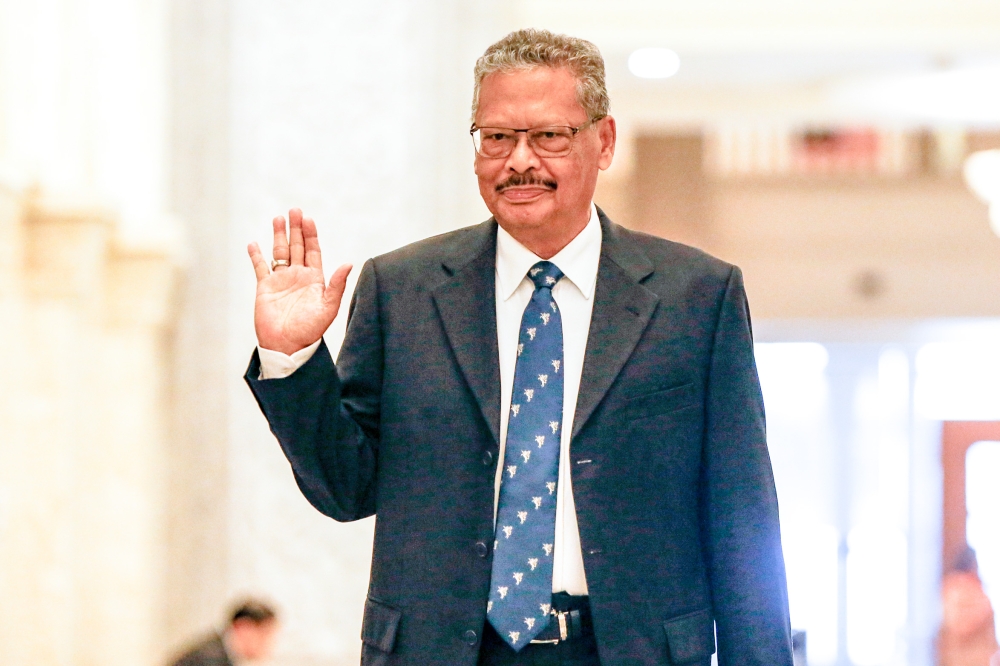JANUARY 27 — The People Against Corruption Secretariat (PACS), which its secretary Zaim Zulkifli said consists of more than 50 organisations, demanded three things from Putrajaya.
“We demand three things from those in Putrajaya, first, we demand the separation of the Attorney-General’s Chambers from the Prime Minister’s Office (PMO).
“Two, the government must ensure that the Malaysian Anti-Corruption Commission (MACC) is free from political interference and lastly, they must introduce the Political Funding Act faster,” Zaim said.
I thought the first demand was misconceived. It should be the separation of the offices of the Attorney General (AG) and the Public Prosecutor (PP).
The AG is the adviser to the Government and the PP [Article 145(3), Federal Constitution and Section 376(1), Criminal Procedure Code].
Under Article 145(1) the AG is appointed by the Yang di-Pertuan Agong (YDPA) on the advice of the prime minister and under Article 145(5) he holds his office at the pleasure of the YDPA.
Under Article 40(1A), the YDPA is bound by the advice of the prime minister. The prime minister, therefore, essentially decides on the appointment and removal of the AG.
There is an inherent conflict of interest when the AG is also the PP. This arises particularly when a member of the Executive is being criminally investigated.
The conflict reared its ugly head when former prime minister Najib Razak was investigated for his involvement in 1Malaysia Development Berhad (1MDB).
The then AG, Abdul Gani Patail, was part of the special task force in charge of the said investigation. He was said to be summarily removed from his office and replaced with Mohamed Apandi bin Haji Ali, who then went beyond the constitutional role of the AG to absolve the former prime minister of any criminal wrongdoing. (See, eg, the contentions of the Malaysian Bar in “Separation of the Role of Public Prosecutor from the Attorney General: Executive Summary”)
According to the Malaysian Bar, there is nothing inherently wrong with providing the prime minister with the discretion to appoint and remove the AG. That authority is normal in a lawyer-client relationship.
The problem arises when the AG is also required to act as the PP. It is imperative that the PP be able to make impartial decisions independent from the Executive.
The AG must not play any role in prosecutorial matters. Prosecutorial powers must be within the exclusive purview of the PP and his deputies. This will allow for transparency and accountability.

Former attorney general Tan Sri Mohamed Apandi Ali leaves the Palace of Justice in Putrajaya on September 4, 2023. — Photo by Hari Anggara.
Accordingly, the PACS should demand for separation of the offices of the AG and PP to maintain prosecutorial independence. The demand should not be for the separation of the AG’s Chambers (AGC) from the Prime Minister’s Office (PMO).
The demand should instead be for the AG to be appointed from among Members of Parliament (MPs) so as to hold the AG accountable and answerable to Parliament directly.
Just like former AGs Abdul Kadir Yusof and Hamzah Abu Samah who were MPs and Ministers for Law.
There is no issue with the second demand. An independent MACC has been the call for many years now. So too the call for a Political Funding Act.
So, when the PACS takes it demands it to the next level, which is to the “palace” – that is, the federal government administration in Putrajaya – there should be four demands, not three.
First, that the office of the AG and PP be separated. Second, that an MP be appointed as the AG to be answerable to Parliament.
Third, that the MACC be independent. Lastly, that a Political Funding Act be enacted.
* This is the personal opinion of the writer or publication and does not necessarily represent the views of Malay Mail.







